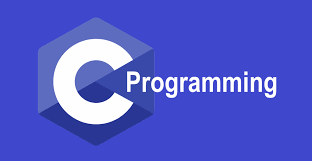
The structure is a user-defined data type in C that allows us to aggregate data of various types. Structure aids in the creation of a more understandable data type.
Need for Structure in C:
There are times when we need to keep several characteristics of an entity in C. An entity does not need to have all the information of a single kind. It can have properties from numerous data types. For example, a Student object may have a name (string), a roll number (int), and marks (float). We have the following methods for storing such details about an entity student:
- Create separate arrays to store names, roll numbers, and marks.
- To store a collection of multiple data kinds, use a particular data structure.
We may achieve this with a simpler way in which you can utilize a particular data structure, i.e., structure, in which you can group all the information of different data types about an entity.
Defining a Structure:
The struct keyword is used to define the structure.
struct name_of_structure
{
dataype variable;
dataype variable;
dataype variable;
}; Example:
struct student
{
char name;
int roll_no;
float marks[5];
float percent;
}; Declaring structure variables:
We can declare structure variables in the following two ways:
1) Declaring Structure variables separately
struct student
{
char name;
int roll_no;
float marks[5];
float percent;
};
struct student St1,St2;2)Declaring Structure variables with structure definition
struct student
{
char name;
int roll_no;
float marks[5];
float percent;
}St1,St2;Structure Initialization:
We can initialize the structure in the following way:
struct student
{
char name;
int roll_no;
float marks[5];
float percent;
};
struct student St1={"Coderzpy.com",23,{89,50,81,73,69},72.4};struct student St1={“Coderzpy.com”,23,{89,50,81,73,69},72.4}; is the initialization statement in which all the structure student’s data are given a value.
Example
#include <stdio.h>
#include <string.h>
struct Books {
char title[50];
char author[50];
char subject[100];
int book_id;
};
int main( ) {
struct Books Book1; /* Declare Book1 of type Book */
struct Books Book2; /* Declare Book2 of type Book */
/* book 1 specification */
strcpy( Book1.title, "C Programming");
strcpy( Book1.author, "Coderz py");
strcpy( Book1.subject, "C Programming Tutorial");
Book1.book_id = 6495407;
/* book 2 specification */
strcpy( Book2.title, "Telecom Billing");
strcpy( Book2.author, "Zara Ali");
strcpy( Book2.subject, "Telecom Billing Tutorial");
Book2.book_id = 6495700;
/* print Book1 info */
printf( "Book 1 title : %s\n", Book1.title);
printf( "Book 1 author : %s\n", Book1.author);
printf( "Book 1 subject : %s\n", Book1.subject);
printf( "Book 1 book_id : %d\n", Book1.book_id);
/* print Book2 info */
printf( "Book 2 title : %s\n", Book2.title);
printf( "Book 2 author : %s\n", Book2.author);
printf( "Book 2 subject : %s\n", Book2.subject);
printf( "Book 2 book_id : %d\n", Book2.book_id);
return 0;
}Output:
Book 1 title : C Programming
Book 1 author : Coderz py
Book 1 subject : C Programming Tutorial
Book 1 book_id : 6495407
Book 2 title : Telecom Billing
Book 2 author : Zara Ali
Book 2 subject : Telecom Billing Tutorial
Book 2 book_id : 6495700Note: also read about the Arrays in C & Two-dimensional array
Follow Me
If you like my post please follow me to read my latest post on programming and technology.
https://www.instagram.com/coderz.py/
https://www.facebook.com/coderz.py
Staying up to the mark is what defines me. Hi all! I’m Rabecca Fatima a keen learner, great enthusiast, ready to take new challenges as stepping stones towards flying colors.
Leave a Comment
You must be logged in to post a comment.